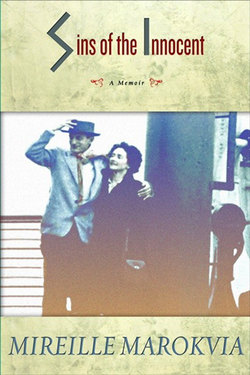Читать книгу Sins of the Innocent - Mireille Marokvia - Страница 15
На сайте Литреса книга снята с продажи.
X
Оглавление“I want to stay in Sarajevo,” I told Abel the day before we returned to Germany.
“So do I,” Abel said.
Six months, Abel had promised. We would not stay more than six months on German soil. Five months had already passed. I knew Abel had not forgotten. Neither he nor I ever mentioned the promise.
Back in my foreign home, I tried to respect the German vegetarian laws and taboos Christine had taught me as I cooked vegetables without killing them by overheating, baked bread without yeast and pies without much fat or sugar. I learned to do the laundry in the old time-consuming manner, and how to press the starched cuffs and collars of men’s shirts.
One day around lunchtime, a young man came to demonstrate the use of a vacuum cleaner.
Abel came in.
“My mother never owned a vacuum cleaner,” he said. “My wife does not need one.”
And I knew that the man I had just married would probably not make a very good husband. I would not let the thought disturb me. It was better, I reasoned, not to burden ourselves with unnecessary possessions. Abel worked long hours at the agency, long hours every night at home doing freelance work. He never complained. I would not either.
Our lives had changed so completely and abruptly, it was as if we had, all of a sudden, reached old age. The only solace now was walking in the pleasant countryside on Sunday afternoons and remembering, remembering, a past so different from the present that it seemed as distant and irretrievable as a dream.
I took a few German lessons that were disappointing, slow, and boring. I decided to use my own empirical method. I listened stoically to conversations I did not understand and read, or rather deciphered, one book after another. Soon the written words began to make sense. And one day, at a family gathering, I spoke.
“You knew German before you came to this country,” declared Abel’s older sister.
In July we received an invitation to the French consulate for Bastille Day celebrations.
We danced to French music. We sang the Marseillaise heartily but not too well, and we drank champagne. I was eager to meet the French citizens of Stuttgart. They were few. I remember speaking to an attractive young woman.
“I have already five children,” she said. “I never go out.”
“I have made two hundred jars of marmalade and stored them in the cellar of the consulate,” the consul’s vivacious wife said.
One German, an invited official, brown shirt, boots, and ruddy face, sat alone, staring at the cup of champagne set in front of him on a small round table. Suddenly he reached for the cup, emptied it in one gulp, gagged, got redder, glared at everybody.
Two weeks later, we were invited to a reception for the wedding of the consul’s daughter.
We danced and drank champagne. The very young bride, I remember, was playful, the groom, an Argentinean businessman, was serious, and the consul and his wife were strangely distracted.
It must have been about a week later, at the beginning of August, that I had lunch with a young secretary from the French consulate. I have forgotten her name and her face but not her parting words.
“I am glad we had this meal together. We might never see each other again, you know,” she said.
As soon as Abel came home that evening, I asked him what he thought of the young secretary’s pessimistic words.
“Oh, yes, yes, I know, I too heard some saber rattling,” Abel said. “Don’t worry, the ogre has to digest Austria and Czechoslovakia first, and that will take time.”
